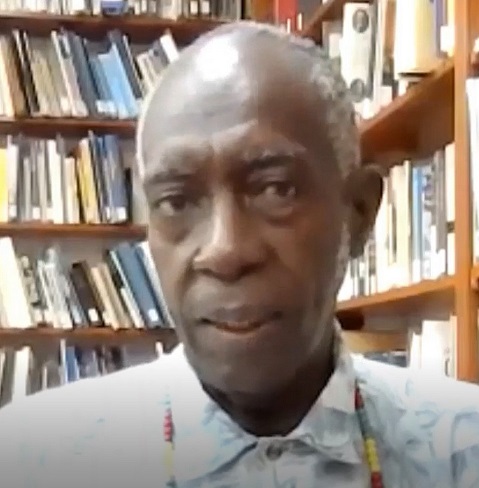 Cathy O'Gara
Cathy O'Gara Graphic Arts Professional, AdPro
"[It] is an impressive overview of last 20th century St. Thomas. It also spans the era from the end of the hand-crafted commercial art to the beginnings of the computer age."
-describing the St. Thomas Graphics Collection
 Karl Callwood
Karl CallwoodArt Director, St. Thomas Graphics Collection
"If you have to leave the island, you lose points."
-quoting Dick Pitzl's business model for St. Thomas Graphics
"Everybody deserves a good job." -quoting Judy Pitzl about the importance of work product quality control
"We could see healing occurring while people were sitting in Graphics." -commenting on the emotional impact of funeral booklets and tributes on preservation of the personal histories of the deceased
 Annice Canton
Annice Canton CGL volunteer librarian; former Executive Director, Virgin Islands Humanities Council
"It reflected the fact that families, organizations, benevolent societies, houses of worship, Main Street businesses, all needed a more sophisticated way to commemorate and advertise their accomplishments."
-commenting on St. Thomas Graphics Collection
 Glen "Kwabena" Davis
Glen "Kwabena" Davis Educator; Culture Bearer; Storyteller; Calypsonian; prior Director of the U.S. Virgin Islands Youth Development Program
"You know, you must have that sense of place. You must have that passion to support and defend the culture and way of life. You must be ready to invest in that place and speak up for that place."
-describing Judy Pitzl as a "Virgin Islander at it's best"
 Charles W. Turnbull, Ph.D.
Charles W. Turnbull, Ph.D.Former Governor of the U.S. Virgin Islands; Historian; Author; prior Commissioner of the U.S. Virgin Islands Department of Education; prior Principal of Charlotte Amalie High School
"For many people, that's the only biography they will ever have."
-referring to St. Thomas Graphics's funeral booklets
 Susan L. Lugo
Susan L. LugoCo-founder and past-president of Caribbean Genealogy Library; former Territorial Archivist, U.S. Virgin Islands
